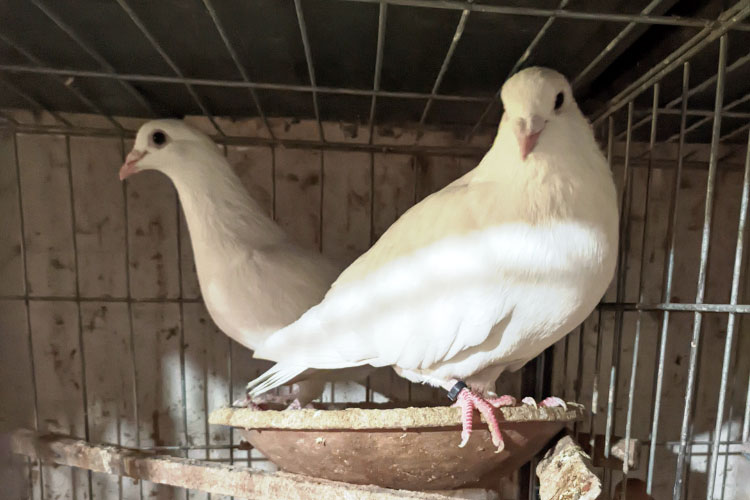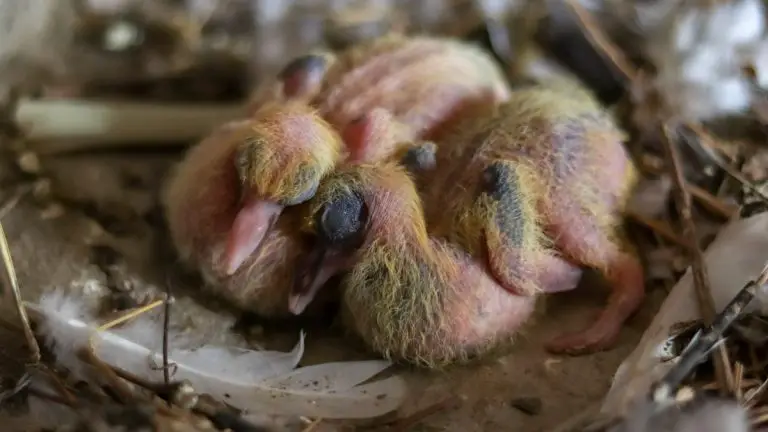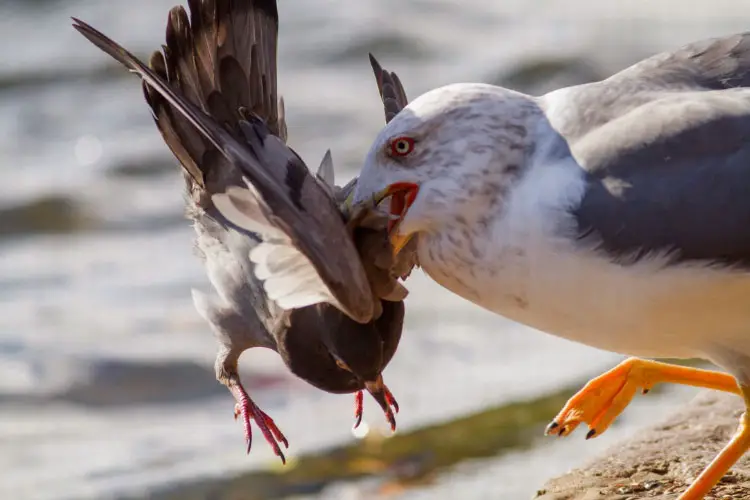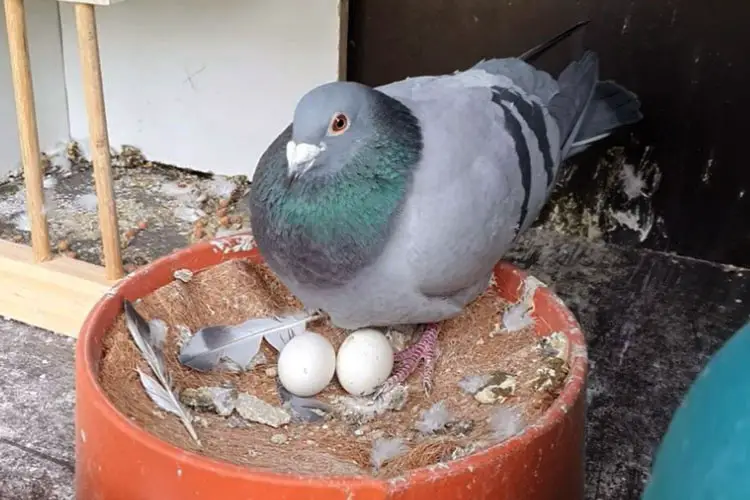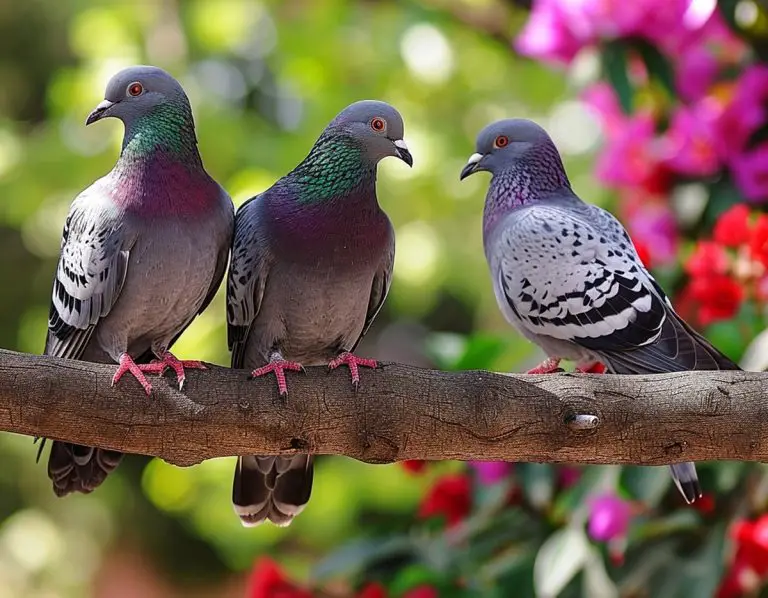Can A Pigeon Fly Without Tail Feathers: Everything To Know
Pigeons are quite a common sight, whether it’s a stray pigeon outside or a pet pigeon. However, you might find some pigeons without tail feathers. And although this seems odd at first, it’s a natural process to lose the feathers.
But can a pigeon fly without tail feathers? Yes! Pigeons are able to fly without tail feathers quite easily. However, they might have some slight issues with maneuverability, stability, and social behavior. Also, overall may be uncomfortable when they have no tail feathers.
They’re able to adapt to their loss of tail feathers to make everything easier for themselves as well. However, today, we’ll go all over pigeons flying without tail feathers, how a loss of tail feathers affects a pigeon, and a lot more. Let’s get straight into it.
Can A Pigeon Fly Without Tail Feathers?
As mentioned above, yes, a pigeon can fly without tail feathers. Most of the time, you won’t have to worry about a pigeon losing their tail feathers, to begin with, though.
Pigeons do naturally lose their tail feathers through a natural process called molting. But this only happens around once every year.
Aside from that, they might also lose their tail feathers when they have a serious illness or infection or from a severe lack of nutrition. These are quite extreme and don’t usually occur, though.
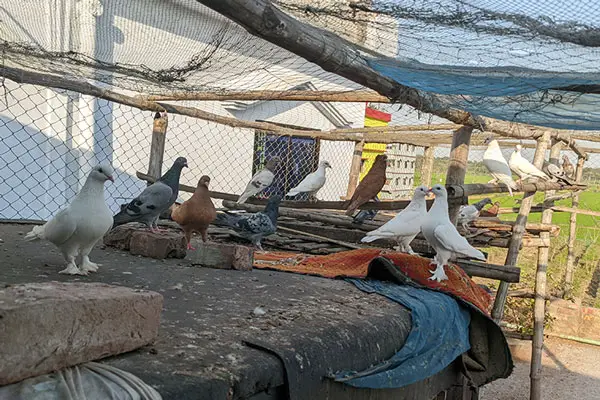
If it’s a stray pigeon, they, unfortunately, might lose their feathers from a predator. This is because when a predator catches a pigeon, it’ll try to pull out the feathers to make it so the pigeon can’t escape easily.
But you won’t have to worry about this if you have a pet pigeon. Even then, your pet pigeon will only not have the feathers during the molting period. This period occurs once every year, and even then, they can fly with relative ease.
Can Pigeon Feathers Grow Back?
Tons of people get confused about whether a pigeon can grow their feathers back after losing them in the molting period or due to other reasons. But yes, they will eventually grow their feathers back.
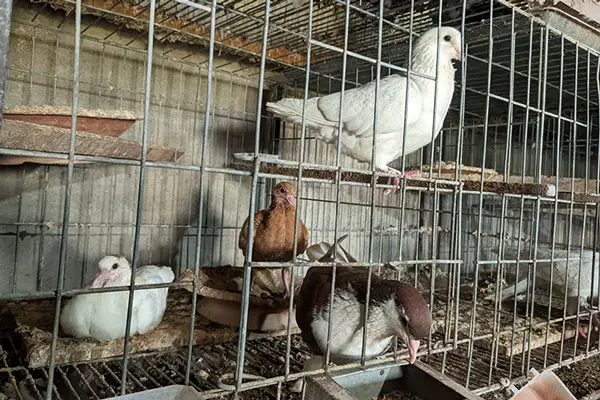
This will take quite some time, though. Most of the time it’ll take around six weeks, but it depends on the breed, age, and some other factors of the pigeon. It’s not painful at all for them to grow their feathers back, though.
How Does A Pigeon Losing Tail Feathers Affect It
If you have a pet pigeon, you usually won’t have to worry about them losing their feathers as much as they won’t be flying for a long time. Aside from that, these are all the ways in which a loss of tail feathers can affect a pigeon, whether it’s a pet pigeon or a stray one —
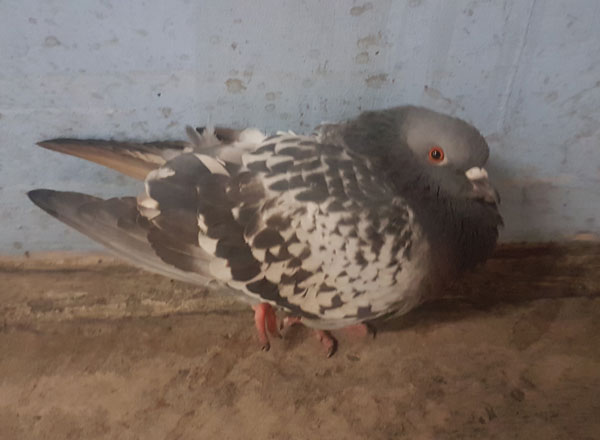
Maneuverability
The most important way a pigeon can get affected when they lose their feathers is in their ability to maneuver. Your pigeon relies completely on the tail feathers to stay upright, as it acts like a rudder to keep its balance and help them take sharp turns.
So if they lose their feathers, they’ll have lots of difficulties maneuvering mid-flight. This can make them more vulnerable to predators, too.
Stability
Along with affecting their ability to maneuver, a pigeon not having tail feathers can affect their stability greatly as well. The tail feathers are one of the most important parts to keep a pigeon stable and upright in the air, so they’ll have to adapt and use the physical muscles in their wings more.
They might have issues with speed too, but nonetheless, they can still fly.
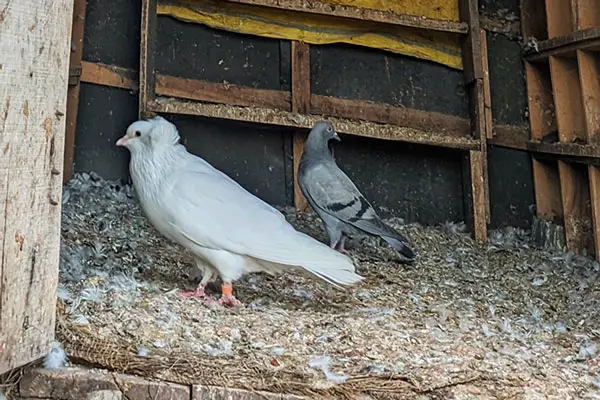
Social Behaviour
Aside from the obvious physical effects, losing the tail feathers of a pigeon can also affect its social behavior. Most pigeons are very social and fly in flocks, but if it loses the tail feather, they might have issues keeping up with the rest of the pigeons in their flock.
This can lead to isolation and might greatly increase the stress levels of your pigeon. Being too stressed might cause illnesses or for more feathers to fall out in your pigeon, too.
Overall, it’ll be quite an uncomfortable experience for a pigeon when it loses its tail feathers. It might not affect a pet pigeon too much, though, as they usually don’t go outside as often.
You should know how to feed pigeons during the molting period, as their diet can change too.
All birds tend to act the same when they’re stressed or irritated, whether it’s a pigeon or a parrot.
Here’s a YouTube video to help you visually find out whether your pigeon is stressed out or not below.
Frequently Asked Questions (FAQs)
Here are some of the common questions which we get asked. Taking a look at these can clear further misconceptions or confusion —
Pigeons only molt around once a year, and most of the time, this happens between July or August to the middle of November. It can vary by a few weeks, depending on the pigeon’s breed.
Molting is a natural process, and it occurs to replace damaged or worn-out wings of pigeons and other birds. This is why it might happen more or less depending on a pigeon’s breed, condition, and age.
No, it isn’t. It’s quite rare for a pigeon to lose all their feathers at once during molting, as the process usually takes a long time. The feathers are lost over a span of time. If this happens, you should take it to a vet, as it might occur due to an infection or disease.
Conclusion
Can a pigeon fly without tail feathers? Yes, it can, but it’ll have quite a big impact on their ability to fly properly, maneuver, stay stable, and their social behaviors. So even if they can fly, they will face some inconveniences.
Pigeons usually tend to lose their feathers during a process called molting, and this happens naturally around once per year, from August to November. When it happens and how often it happens depends a lot on the age and breed of your pigeon, though.
The feathers usually grow back after 6 weeks, too. If you see any unusual patterns, such as losing all the feathers at once, you should contact your vet as it might be a disease.
